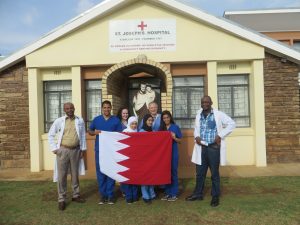 Here at RCSI Bahrain our students wear blue scrubs to hospital attachments, but it’s a long time since I have been in scrubs. With some trepidation I had agreed to take four final year RCSI students to work for a fortnight in a small hospital in Lesotho.
Here at RCSI Bahrain our students wear blue scrubs to hospital attachments, but it’s a long time since I have been in scrubs. With some trepidation I had agreed to take four final year RCSI students to work for a fortnight in a small hospital in Lesotho.
Lesotho is a small mountainous nation, landlocked within South Africa. 40% of the population live on less than 1 US$ per day and almost a quarter of the adult population is HIV positive. You are 10 times more likely to die in an RTA than in the UK, and 50 times more likely to be murdered.
I had never been to Africa before. We landed at Johannesburg airport to meet up with a larger contingent from Action Ireland Trust (AIT), an Irish charity involved with development work in Africa. I drove our students across South Africa as part of the bigger party in in a convoy of mini vans. This is the one task I do feel prepared for – after the Middle East even driving in Africa feels OK. The hotel is interesting; nothing seems to work except my air conditioning, which sounds like a small lawnmower.
Together with an AIT doctor I am to supervise our students doing appropriate clinical work. RCSI goes out every year. The Lesotho Medical Council already has our details and copies of our documentation. The actual registration process normally happens on the first morning, when we attend in person with our passports and some cash. But this time the computer says no. Since the last visit the registration process has been “improved” with help from a grant from the EU. It took interventions from an Archbishop, an Ambassador and a government Minister to get us registered. My registration certificate from the Medical Council of Lesotho is now a treasured possession.
And so I became part of the blue pyjama brigade. Myself, my AIT medical colleague and our four students, resplendent in blue scrubs, descended on a small hospital some 30km from Lesotho’s capital, Maseru. The hospital serves a rural population of 200,000. Five GPs with nurse support provide 99% of the medical care for this population via the hospital and a handful of remote clinics. They run the hospital together with a fabulous Hospital Manager and a Nursing Officer.
In Bahrain 30% of the adult population has diabetes and these generate the chronic medical workload. In Lesotho it is HIV and its progeny, TB and PCP. We see new cases every day in packed open access clinics. We see Pott’s disease, TB lymphadenopathy, miliary TB, the list goes on. Having worked in South London I’ve seen many stabbings but now I see my first ever spear wounds (and more ordinary stabbings for good measure). Almost everyone is anaemic. We admit sick kids and serious adult pathology. We deal with broken bones and lacerations. The GPs look after the inpatients also – there is no one else. Only major surgical cases can be transported to Maseru. A close member of a hospital staff member’s family is murdered but she still turns up for work.
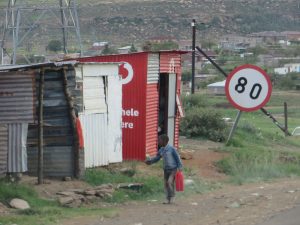 We drive to an outlying clinic. I thought the potholes on the main roads were bad, but now we are driving over unmade roads in the hills, eroded and rough. Driving across a ploughed field would be easier. Yet driving each day across the hills and plains of Lesotho is heart wrenchingly beautiful. Changing the inevitable flat tyre was not so beautiful. We were quickly surrounded by smiling faces and helping hands but the smiles disappeared when an unreasonable payment was demanded. I remembered the stabbings we had seen. We gave out some Rand and left quickly.
We drive to an outlying clinic. I thought the potholes on the main roads were bad, but now we are driving over unmade roads in the hills, eroded and rough. Driving across a ploughed field would be easier. Yet driving each day across the hills and plains of Lesotho is heart wrenchingly beautiful. Changing the inevitable flat tyre was not so beautiful. We were quickly surrounded by smiling faces and helping hands but the smiles disappeared when an unreasonable payment was demanded. I remembered the stabbings we had seen. We gave out some Rand and left quickly.
To say this was a humbling experience is a cliché, yet so true. General practice in the UK is well developed, stressful and increasingly dysfunctional. In Bahrain it is developing rapidly, it is stressful but functioning unencumbered by politicians and micromanagement. In Lesotho it is an immediate battle of life and death. Our five Lesotho colleagues are facing an unthinkable tide of pathology and trauma. Despite Alma Ata and the Millennium Development goals the inverse care law lives on.






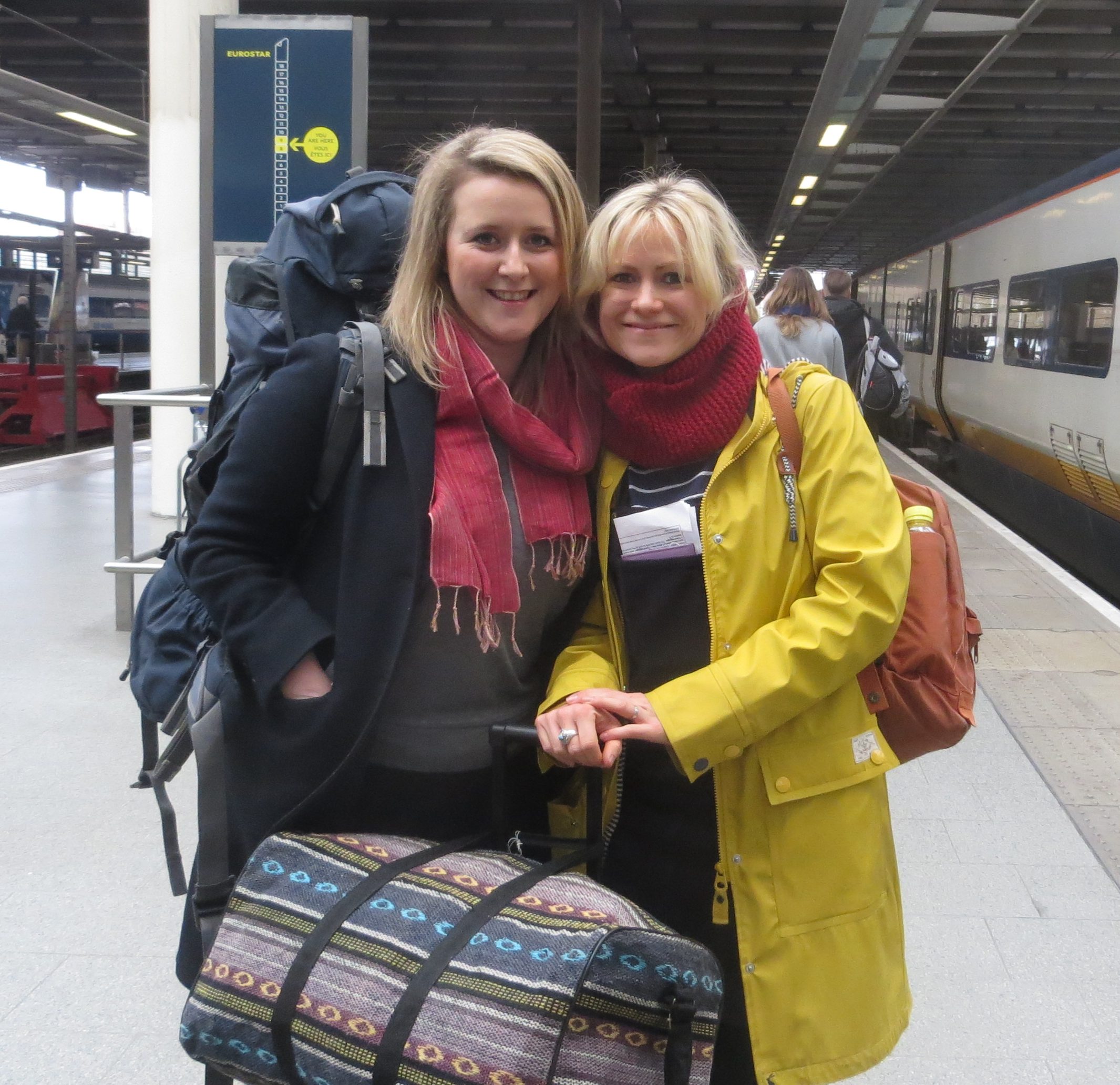


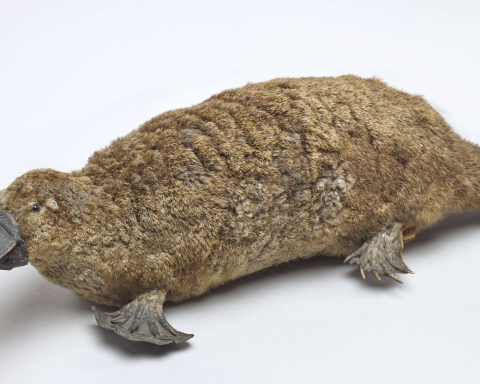
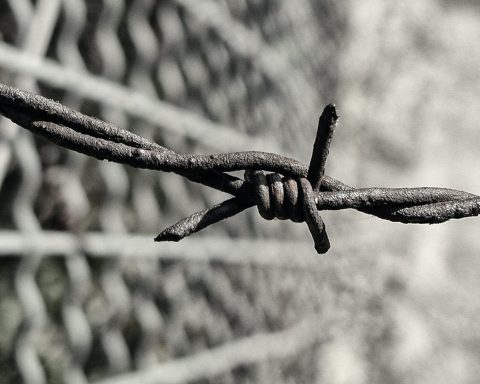
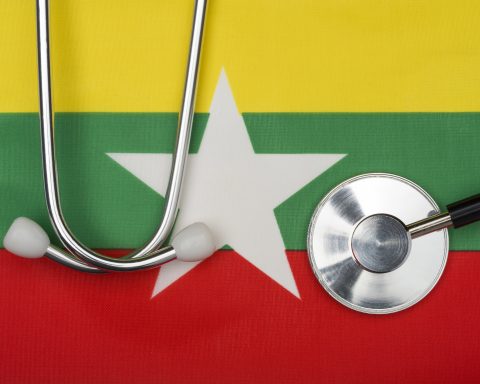

5